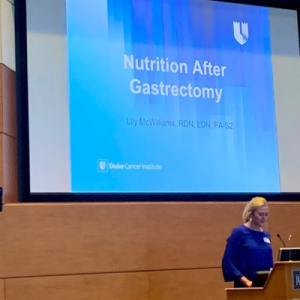New Year’s Resolution Ideas for PA School Applicants
Second Year PA Student Blog: Shubh Dhruv
Growing up, I always heard about the challenges and adversities my family had gone through in order to immigrate to the United States and create a better life for my brother and me. It was not until we began visiting India regularly that I began feeling so fortunate for my life here in the States. In late 2016, I had gone on what I believed to be another family vacation to India alongside my family.
What Makes a PA Applicant Stand Out?
First Year PA Student Blog: Amanda Bassett
You Didn’t Get Into a PA Program, Now What?
Duke PA Program Faculty Present at 2022 Physician Assistant Education Association Forum
Earlier this month, Duke PA Program faculty and alumni traveled to San Diego for the 2022 Physician Assistant Education Association (PAEA) forum.
According to the PAEA website, “For over 25 years, the PAEA Education Forum has been the premier event in PA education, bringing together faculty and staff to learn and connect.”
Duke Physician Assistant Program Celebrates Retirement of Pat Dieter and Peggy Robinson
Last week faculty and staff of the Duke Physician Assistant (PA) Program gathered to wish a fond farewell and happy retirement to two long-serving faculty members, Pat Dieter, MPA, PA-C, and Peggy Robinson, MS, MHS, PA-C.
Planning Your Path to PA: Undergrads
Physician Assistant Student Lily McWilliams Presents at Spotlight on Stomach Cancer Symposium
Second-year student Lily McWilliams, RDN, recently presented at the “Spotlight on Stomach Cancer Symposium” hosted by No Stomach for Cancer, an organization providing support to stomach cancer patients and their families.









